Arcadia Magazine Summer 2023: Reducing the Stigma Around Mental Health
Now more than ever — with students facing an untold amount of mental and emotional stress — mental health resources are a top priority for students, faculty, staff, and senior leadership.
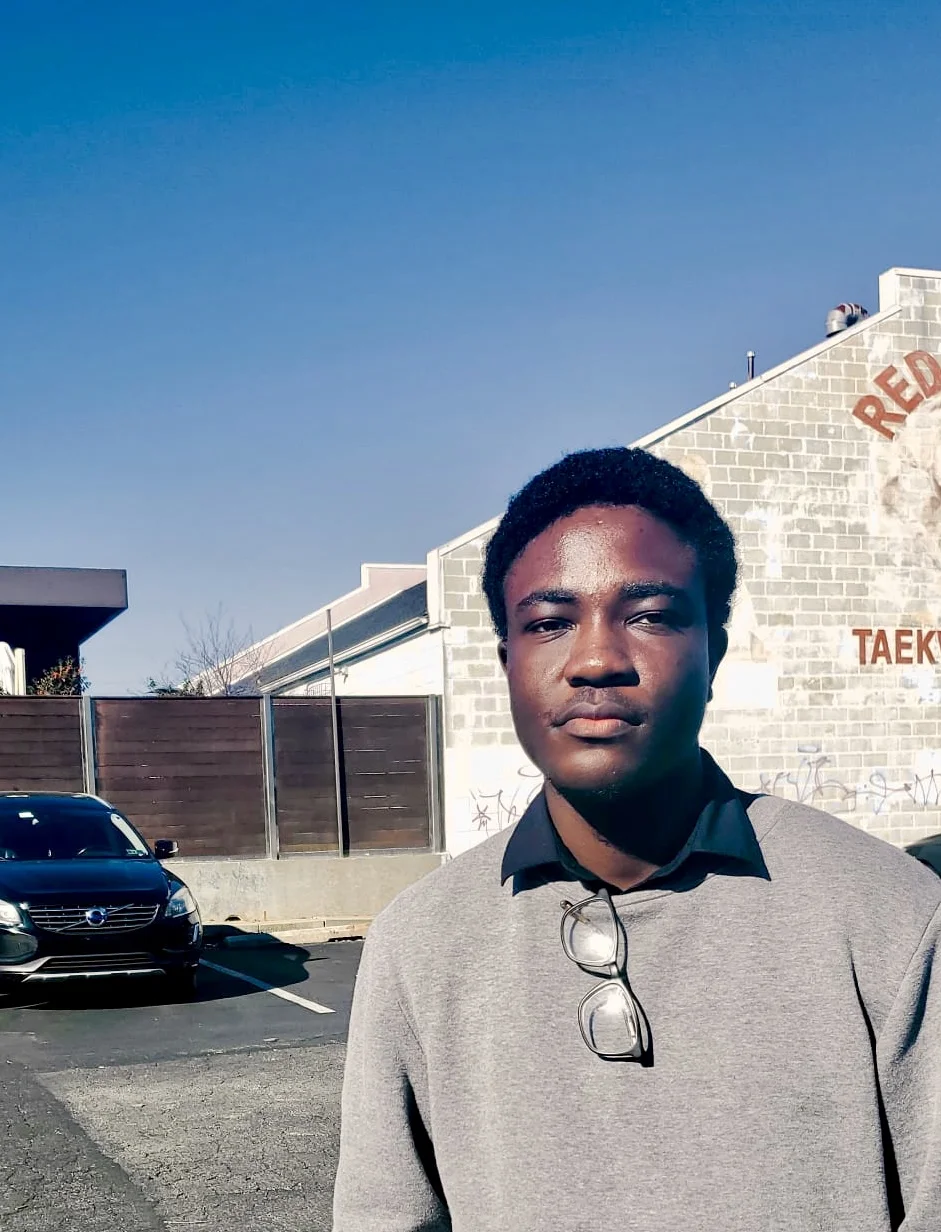
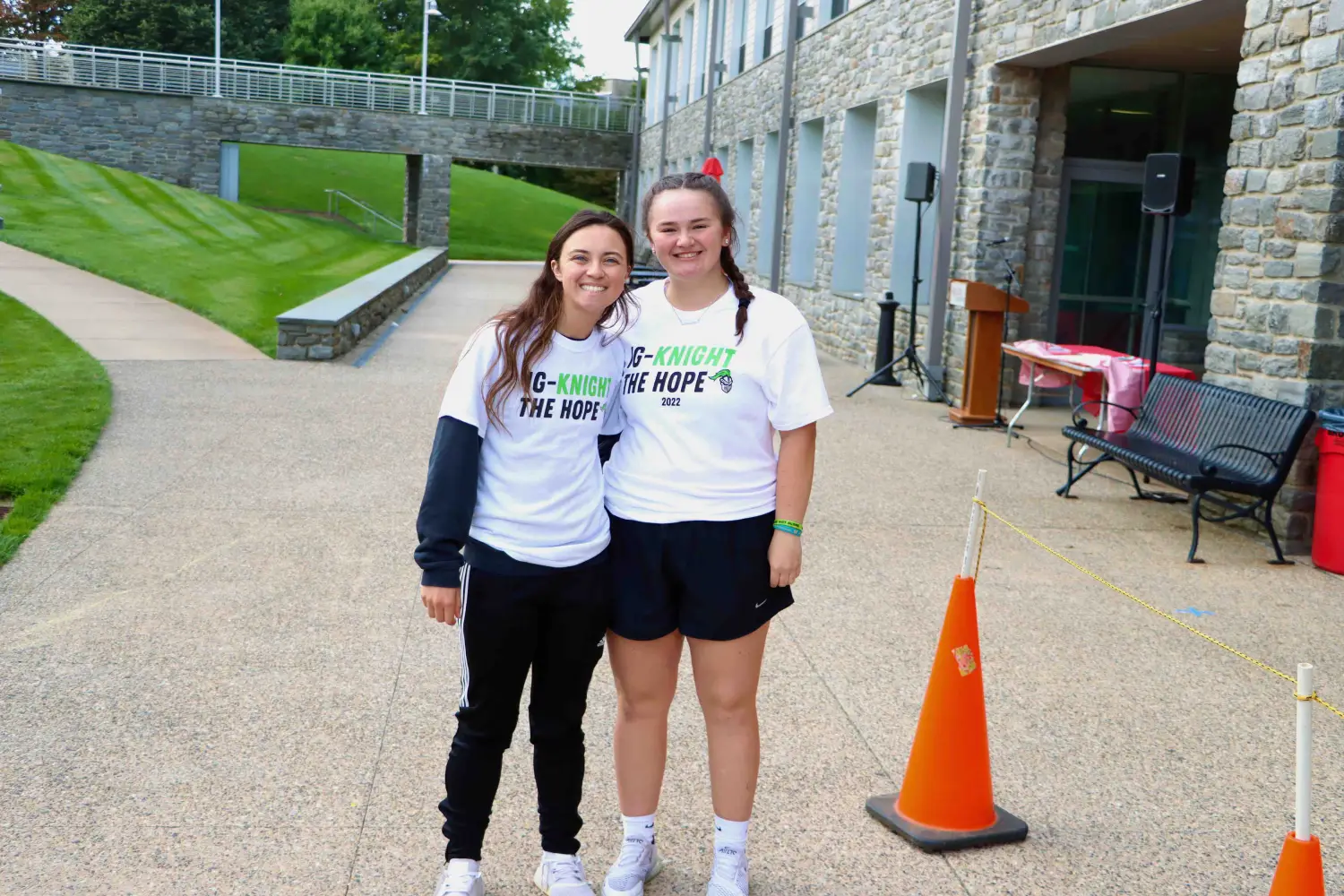
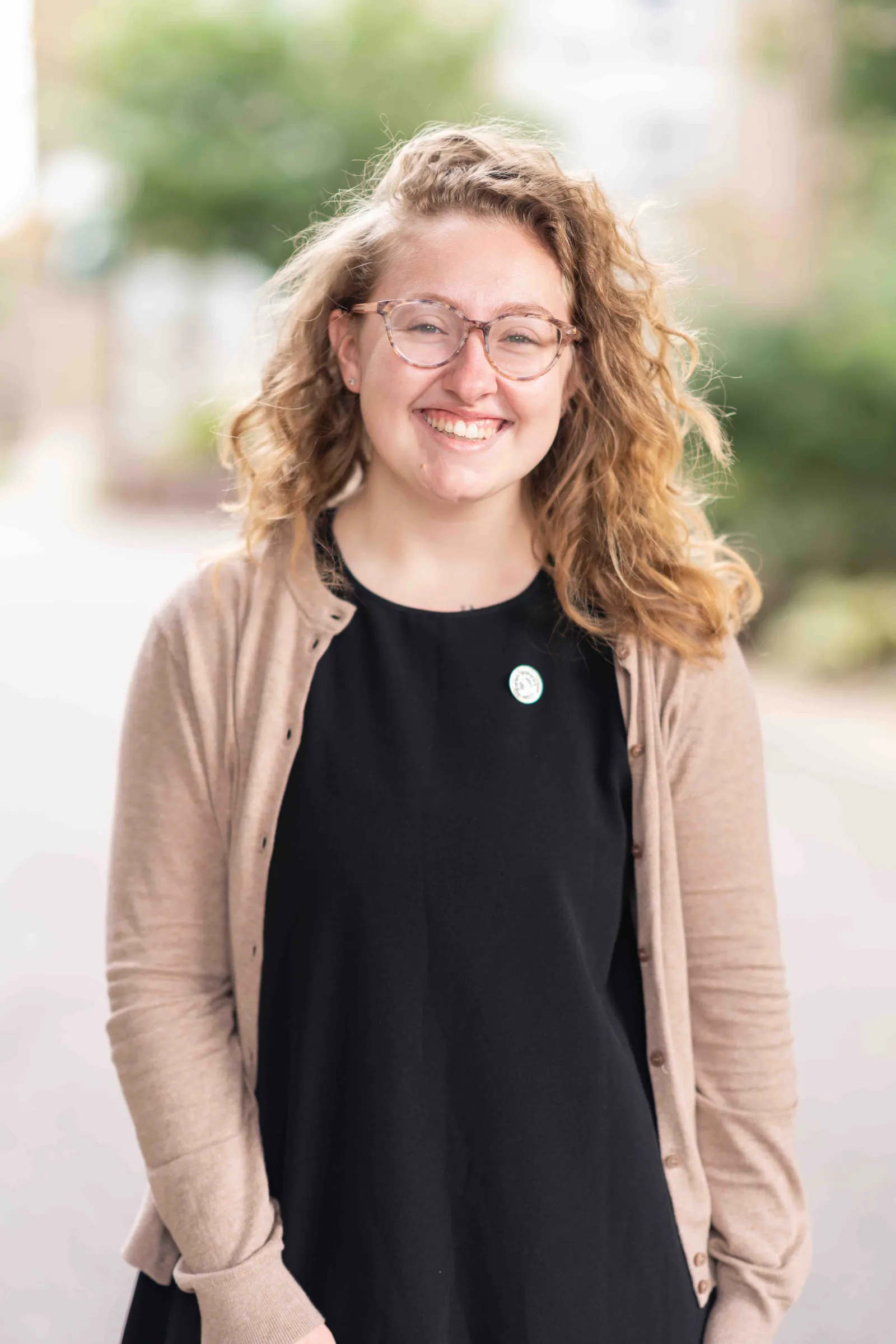
As a junior transfer student, Praise Joel ’23 felt lost during his first year at Arcadia University. Forming connections with other students was hard until he discovered a space solely intended for Black students to connect, the For the Culture group.
Joel wasn’t the only college student experiencing loneliness, loss, confusion, anxiety, depression, isolation, or feelings of being overwhelmed. Jackie Skalski ’24, a Criminal Justice major and member of the women’s basketball team, recalls feeling lost and wanting to give up after tearing her ACL her freshman year and going through a grueling recovery period.
“There were moments where I just wanted to quit,” says Skalski. “I started having periods where I was depressed and anxious because getting injured was completely out of my control.”
A University of Minnesota survey of nearly 45,000 college students shows increased stress, anxiety, depression, suicidal thoughts, and posttraumatic stress disorder (PTSD) in students 15 months after the COVID pandemic began.

“You can’t escape the fact that students are struggling,” says Amy Henning, director of Counseling Services and the Alcohol and Other Drug Program. “And Arcadia is noticing that and offering some unique ways to help support students’ mental health.”
One way is by realizing that prevention and intervention services are critical when helping a student with mental stress or mental health issues. Arcadia looks at the student as a whole person and recognizes that their emotional health is just as important as their GPA.
“If you’re not well emotionally, it’s tough to succeed academically,” says Henning.
Arcadia is helping students achieve emotional and academic success by destigmatizing mental health, discovering new ways to prioritize students’ mental health, and promoting ways to continue advancing in social and emotional well-being when they transition to alumni.
Destigmatizing Mental Health
Going to college is a transformative experience for young adults; they leave behind childhood days and start a self-explorative journey of adulthood. But, while extraordinarily fulfilling, these years can be one of the most stressful developmental times for young adults.
Arcadia has several groups dedicated to destigmatizing mental health in college students, whether for student-athletes, those looking for a personalized community, or people not interested in any one particular area. Arcadia has various groups for students, so no one needs to struggle in silence.
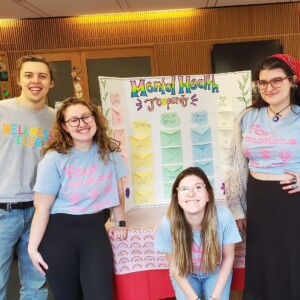
“Mental health is a huge topic to discuss, and it’s often not portrayed in a good way,” says Hannah Craig ’24, a leader of Arcadia’s Active Minds chapter. “My main goal is to let my peers know that I’m here for them, and if they need someone to listen to them, we’re there for them.”
Craig helped to reactivate the Active Minds chapter in 2022 to advance the mental health conversation at Arcadia. The club, which had a presence on campus for years, had lapsed into inactivity in 2020.
Arcadia’s Active Minds chapter is part of a national nonprofit organization founded in 2003 by Alison Malmon, whose brother Brian died by suicide as a student at Columbia University. The organization has worked to destigmatize mental health on more than 1,000 campuses and communities, reaching nearly 2 million people each year.
“I think having this club on campus is very important because I know that mental health is a huge topic to talk about, and we need to establish that it’s okay not to be okay,” says Craig.
Donavan McCargo, who joined Arcadia as vice president of Campus Life and Dean of Students in 2023, has seen how students, faculty, staff, and others have worked together to build a community of care.
“What makes Arcadia University a special place is that we have remained committed to facilitating an environment and atmosphere where our students can thrive,” McCargo said. “If we can equip our students with the tools and confidence to seek help when life circumstances disrupt their being, these same students can be mental well-being ambassadors for others well beyond their college years.”
During the 2021-2022 academic year, the University entered into a contract with TimelyCare, an online mental and physical health on-demand and scheduled service for Arcadia students. The service gives students 24/7 access to therapy services and resources to supplement the University’s Counseling Services department, which has increased its emergency crisis efforts on campus.
Alongside TimelyCare and the Active Minds Club, Arcadia recently partnered with the JED Foundation, a nonprofit focusing on suicide prevention and building emotional health within teens and young adults.
The nonprofit started in 2000, two years after the founder’s youngest son, Jed, died by suicide, one of the leading causes of death among young adults. His parents wanted to help other students navigate the emotional challenges of high school and college by preparing them for adulthood through increased student connection, preventative services, and mental health resources.
“College is not meant to be easy — it’s meant to challenge you, and it’s meant to be a time for growing,” says Dr. Kim Dean, a Nationally Certified School Psychologist (NCSP), Director of Equity, Inclusion, and Opportunity in Special Education, and associate professor of Education at Arcadia. “We shouldn’t be surprised that students struggle; we need to embrace that. But we need to expand opportunities to build students’ coping skills and develop a sense of connection and belonging on campus. These are things that help students lean into challenge, bounce back from adversity, and more effectively manage critical feedback.”
Arcadia is one of seven universities participating in a regional JED Foundation cohort this fall. After the initial assessment, Arcadia’s JED team will develop and implement responsive programming over three years alongside other universities nationwide that have already undergone the JED process and developed programs, strategies, resources, and training.
The goal of the JED Foundation is to find the best ways to reduce the stigma surrounding mental health and expand the network of people promoting those initiatives, including For the Culture, which supports JED Foundation resources within its group.
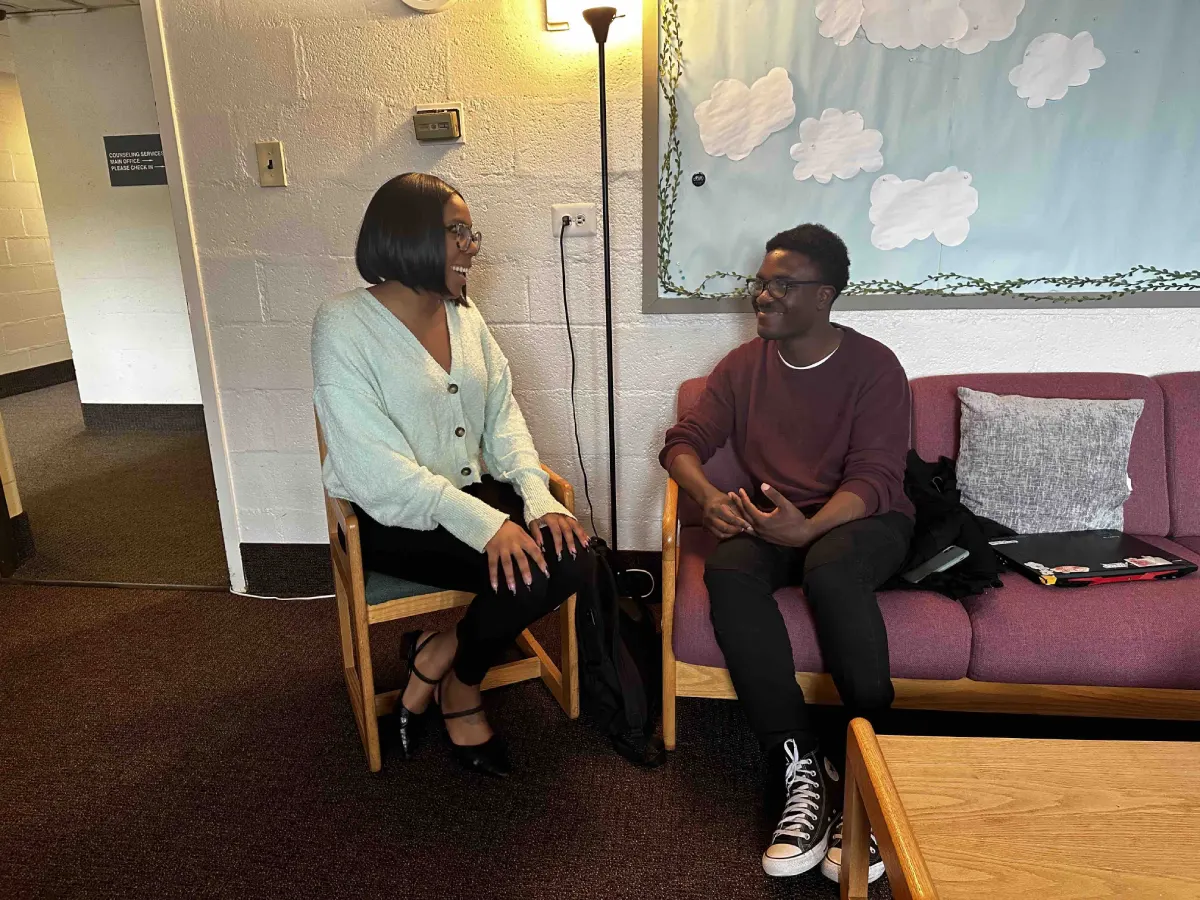
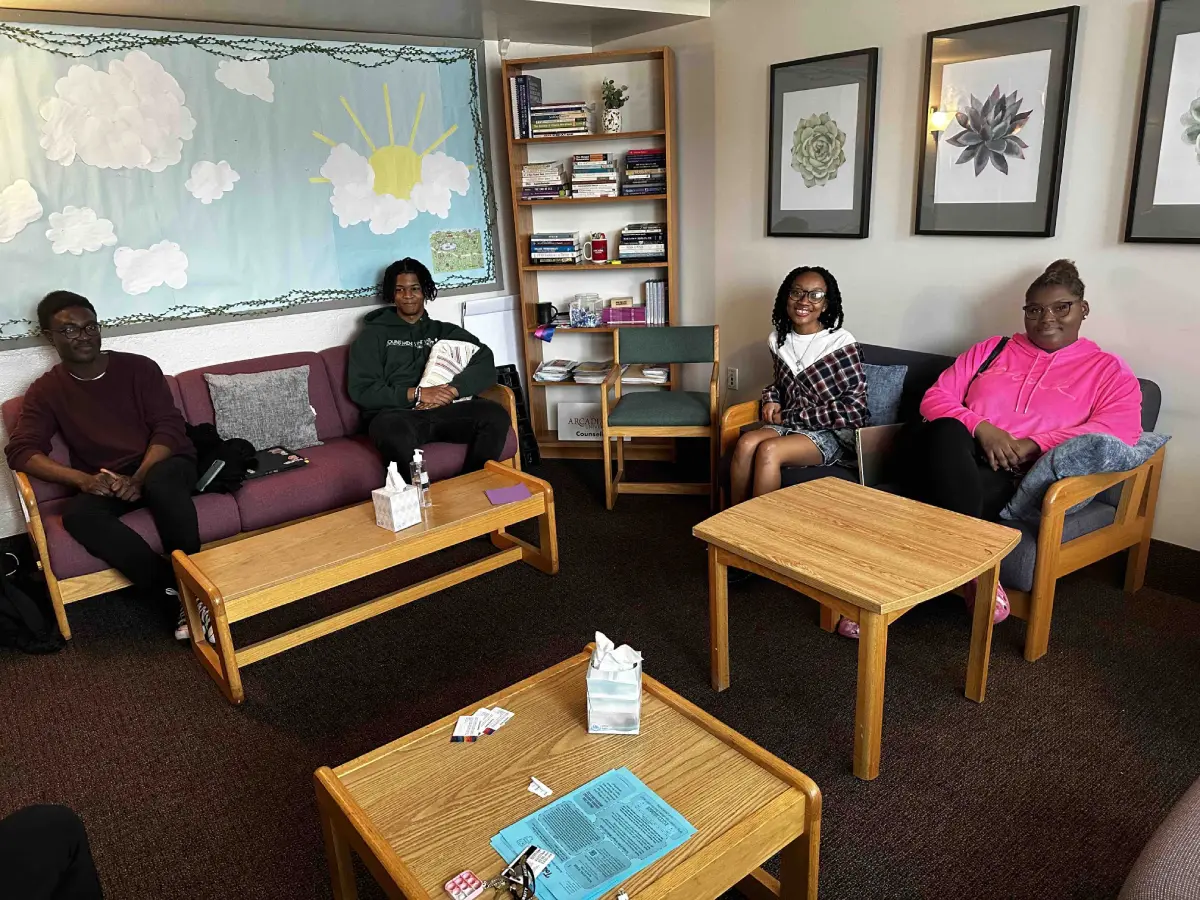
For an Inclusive Culture
For the Culture, headed by Maya Johnson, assistant director of Counseling and Diversity and Inclusion Initiatives at Arcadia, works with Black students on campus to provide a space for students to connect, check in with each other emotionally, and talk about different topics, like stress management or what it’s like to be Black at a predominately white institution.
“For me, it’s essential to create a community with Black students on campus and address mental health issues and needs,” says Johnson. “I think it’s important too that students see me as a human being; I’m a therapist, but I’m also relatable, and I hope it helps them see that I am easy to reach.”
Every Monday, For the Culture meets in the Heinz Conference Hall across from Counseling Services. With a white noise maker set outside the door and an array of chairs placed around the room, a handful of students gather to discuss everything from job interviews to mental health wellness check-ins.
This isn’t the only group dedicated to destigmatizing students’ mental health; Arcadia’s Hidden Opponent chapter helps student-athletes battling mental health challenges like depression and anxiety and is part of a larger nonprofit organization founded in 2019 by Victoria Garrick Browne, a former Division I athlete and PAC-12 champion who battled depression and anxiety as a student-athlete.
The Hidden Opponent chapter was started in 2020 by Anna Intartaglia ’22 and Abbey Finkill ’23, who, like Skalski (the current president), had been sidelined from playing basketball due to a torn ACL. The club didn’t truly blossom until the following year, and Skalski became president in 2022.
Finkill and Skalski both struggled with their mental health after they felt they lost part of their identity without their sport and felt that other student-athletes experienced or have experienced similar feelings. They wanted to make the Hidden Opponent chapter available to help student-athletes with the specific struggles that many of them faced.
“I never had a serious injury or life without basketball,” says Skalski of her recovery time. “The hardest thing for me was watching life go on without me, and there were points where I wanted to quit. Then I started having periods of depression, and the anxiety came because getting injured was completely out of my control. Losing my sport, I also lost my outlet, and I had to relearn how to cope in other ways.”
“It was like an identity crisis,” adds Finkill, the chapter’s vice president. “I didn’t know myself as a person during that time; I went from working out every day, playing a sport I loved, to not being able to do that, and it was detrimental to my mental health, and then I started therapy.”
Finkill remembers feeling lost, like she didn’t know herself anymore or what interested her without basketball. She fell into a depression that she couldn’t pull herself out of alone. Therapy helped both Finkill and Skalski realize how critical taking care of one’s mental health is, especially for athletes.
This year, The Hidden Opponent has dedicated more than 10 games to the cause and partnered with the Student Athlete Advisory Committee to co-host Mental Health Awareness Week. The group also offers opportunities for coaches to become involved with raising awareness for their athletes.
All of Arcadia’s groups, including Active Minds, The Hidden Opponent, For the Culture, and the JED Foundation, are in place to help destigmatize mental health and prioritize students and ensure that they receive the proper resources they need to succeed.
Prioritizing Mental Health
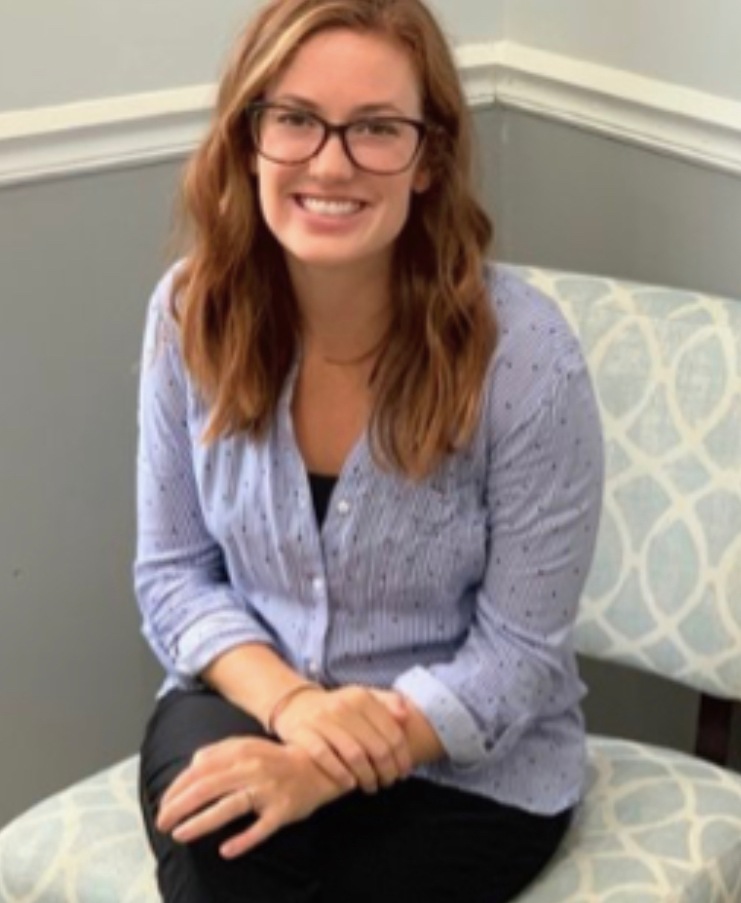
Samantha Rock ’20M, a teen therapist at Creative Healing, experienced first-hand how much the University prioritizes its students’ mental health. While earning her Master’s in Counseling from Arcadia, she was strongly encouraged to undergo therapy through Counseling Services or outside support. This later became part of the curriculum for the Counseling program.
“The reason, I think, is to help support our mental health, because it can be difficult at times supporting others through extremely challenging things, and you can forget to take care of yourself when in a helping profession,” says Rock. “But another part of that was to help us see what it’s like to be a client and on the other side of the therapy experience.”
Recently, the University added two new positions dedicated to prioritizing students’ mental health: one is an Assistant Director of Diversity and Inclusion Initiative out of Counseling Services, the position that the aforementioned Johnson holds. Her role is to help Arcadia participate in anti-racism initiatives, identify counseling methods to reach minority groups on campus, and be reflective of specific populations of students. The other new addition is a volunteer position in Arcadia’s athletics department, the Mental Health and Performance Coach, solely designed to support student-athletes’ mental health.
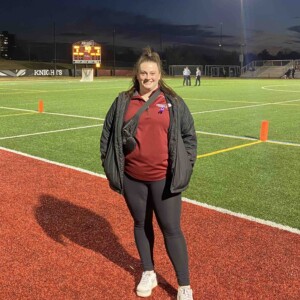
Laynie Callo comes to campus twice a week to help student-athletes returning from an injury or overcoming performance anxiety. She works to implement mental performance, mental toughness, and sports psychology in all physical and mental aspects to the student-athletes at Arcadia.
“I approach this career from the point of view that I was a college athlete that got injured, and I had to come back to my sport, and it is mentally exhausting, especially if you don’t have the proper support system,” says Callo. “The athletic training staff and coaches here are great, but it doesn’t necessarily have to always be on them. Any additional resources regarding mental health and mental performance can help relieve pressure from both the coach and the athlete.”
Callo doesn’t just help relieve athletic stress; if a student-athlete struggles with academics, she provides resources, stress management skills, and more. Most of Arcadia’s faculty and many staff are trained in Mental Health First Aid, an eight-hour training led by Montgomery County that comprehensively teaches mental health diagnoses.
The course goes over role-play scenarios of what to do if a student is in a crisis, how to begin a conversation related to mental health, how to be an excellent first responder, how to assess a particular situation, and how to get a student to the proper resources they need.
“We have offered this program twice a year for the last six years,” says Henning. “The certificate is good for three years; we have had various students, faculty, and staff who have completed it.”
Faculty and staff are trained to look for signs of chronic issues before it gets to a crisis, like changes in students’ behaviors, if they stopped attending classes, if their academic performance has changed, or not handing in assignments. Are the students looking withdrawn? Are they less responsive? Do they not look well, or are they not taking care of themselves?
Mental Health First Aid teaches faculty and staff to create space within their classrooms and offices to check in with students, to develop the skills to be good observers, and to learn how to ask questions.
“We also have a Student Care Team, which is made up of different constituents on campus,” says Henning. “I’m on it, and we have someone from Athletics on it, the Office of Student Success, Student Affairs, Resident Life, Public Safety, etc., so it’s a whole conglomerate of different staff and faculty members who reach out to students who are struggling and refer them to proper resources.”
Whether undergraduate or graduate, any student at Arcadia has access to the Counseling Services resources. And if a student is graduating, Arcadia works with them to bridge them with care to ensure they have the best resources before graduating.
“If you are struggling, you do not need to hide it; it is not something you should be ashamed of or feel guilty about,” says Callo. “It is something you should be comfortable coming forward because you are not alone.”
Joel, who graduated this past May, learned this by stepping out of his comfort zone, realizing the mental health benefits of camaraderie and group support.
“At first…I felt like I didn’t need anybody and that I could do everything by myself,” said Joel. “But after attending the For the Culture group, I realized how nice it was just to talk about things, and that many others may feel the same way.”

